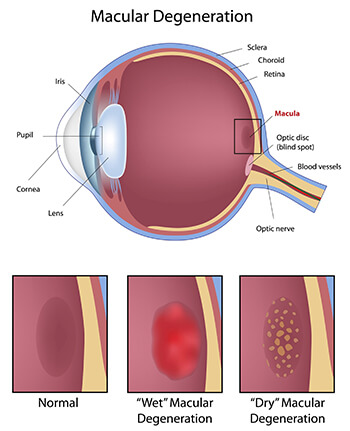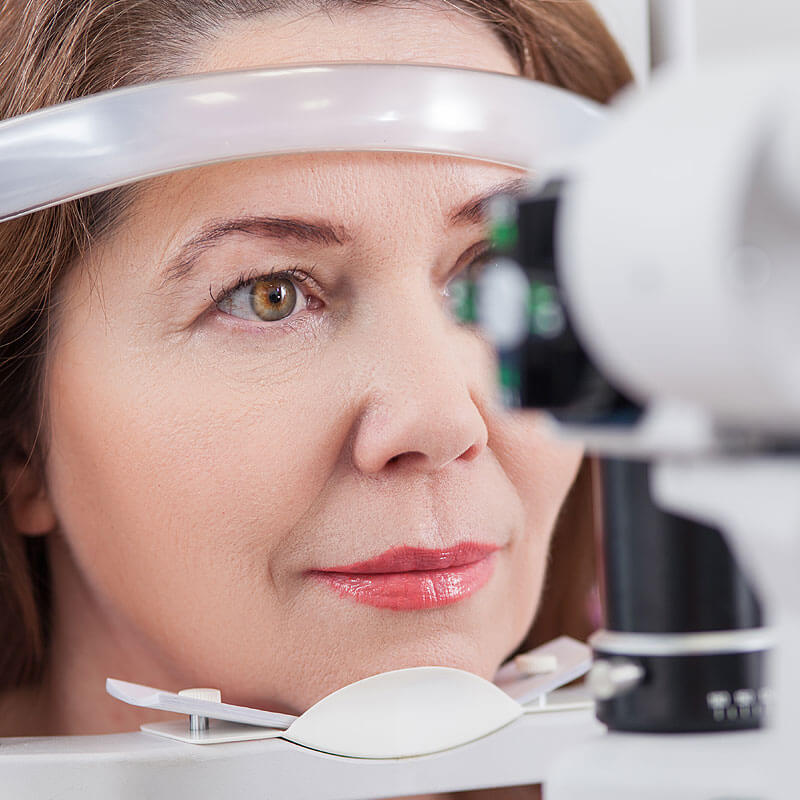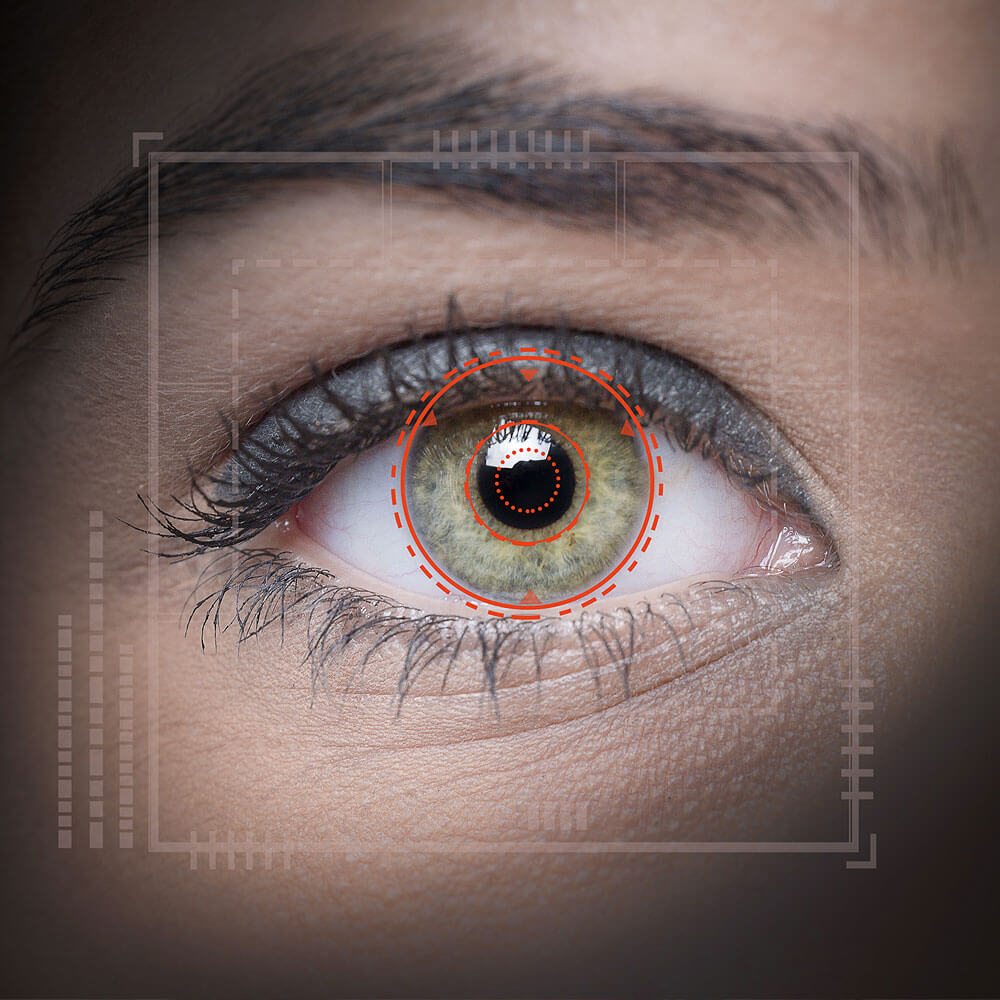As we age, it’s not uncommon to have joint pain or see your skin sag. Another part of the body that ages is your eyes.
The macula is a crucial part of the eye that’s located in the center of the retina. The macula is also especially vulnerable to AMD, or Age-Related Macular Degeneration.
What is Macular Degeneration?

This condition occurs when the photoreceptor cells that make up the macula degrade. This leads to loss in your central field of vision.
Visual loss due to retina damage is irreversible. This is why it’s important to detect and diagnose AMD in the early stages to slow down the progress of the disease.
How Do You Get Macular Degeneration?
Besides the natural process of aging, it is unclear what causes AMD. There are certain factors that make you more likely to develop AMD.
You are most likely to get AMD when you are 55 or older. You are also at increased risk if you:
- Smoke
- Have a family history of AMD
- Are Caucasian
If you have any of these risk factors, it’s vital to have regular retinal exams. If you do have Age Related Macular Degeneration, it’s important to get a diagnosis early.
What is the Difference Between “Wet” and “Dry” Macular Degeneration?
There are two different types of AMD: dry and wet.
Dry AMD
Dry AMD is far more common that wet AMD. About nine out of ten cases of AMD are dry. This means that the macula isn’t leaking blood or other fluids.
Dry AMD doesn’t damage central vision as severely as wet AMD. Dry AMD can cause visual field limitations, poor night vision, and vision fluctuations.
In late stages of AMD, depending on how severe it is, it can thin out the retina and cause loss to your central vision.
Wet AMD
Wet AMD is rarer than dry AMD, but it isn’t uncommon, appearing in one out of ten cases of AMD. It occurs when the macula leaks due to abnormal blood vessel growth.
This causes the macula to bulge, causing permanent damage to your central vision. It is extremely important to diagnose wet AMD early, as it can progress very quickly.
How Do You Diagnose Macular Degeneration?
The only way to diagnose AMD is through a retina eye exam. Individuals at high risk should also consider OCT, or Optical Coherence Tomography.
OCT can identify AMD in its earliest stages through 3D imaging. Early diagnosis of AMD is your best defense, allowing you to save more of your central vision.
How Do You Treat Macular Degeneration?

There is no way to cure or reverse AMD. You can manage and treat the condition with lifestyle changes and medical intervention.
Eating healthy and exercising can help slow the progress of AMD. Your eye doctor may recommend certain nutritional supplements with antioxidants.
These nutritional supplements can strengthen the cells in your macula. Smoking also increases your risk of the disease. Quitting could help slow its progression after diagnosis.
For wet AMD, treatment should be more aggressive to prevent vision loss. This can involve a couple types of medical intervention:
Laser Photocoagulation can cauterize leaking blood vessels. This can be done in a doctor’s office without needing any kind of major surgery. Repeat treatments are often necessary to prevent further leakage and damage.
Anti-VEGF Medication is drugs that are injected right into your eye. These drugs limit the production of VEGF (vascular endothelial growth factor). VEGF is a protein that contributes to blood vessel growth.
This can prevent more abnormal blood vessels from forming. It can also reduce the amount of abnormal blood vessels already present.
The effects of the injection last about a month. Repeat injections are necessary to continue to prevent retinal damage.
This condition occurs when the photoreceptor cells that make up the macula degrade. It leads to loss in your central field of vision.
Visual loss due to retina damage is irreversible, so it’s important to detect and diagnose AMD early. This is the only way to slow down the progress of the disease and save your remaining central vision.
Looking for treatment options for AMD or have more questions? Schedule an appointment with Vitreo-Retinal Consultants in Wichita, KS today!





